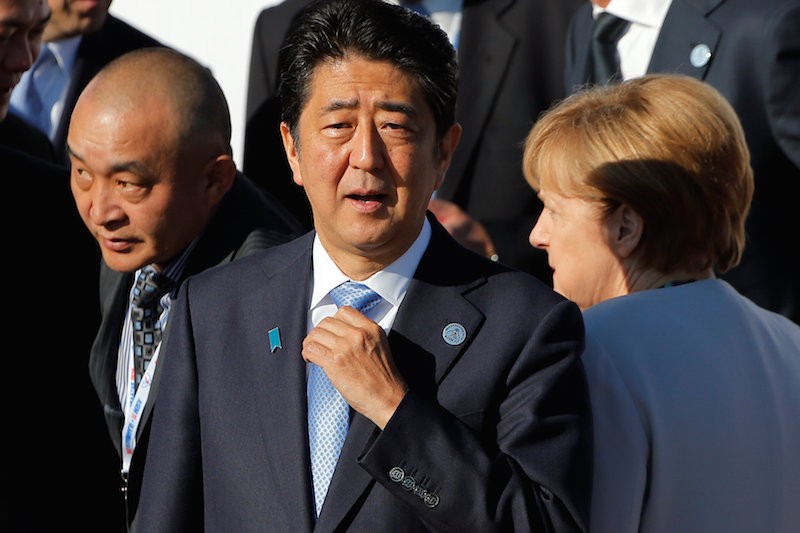Japanese Prime Minister Shinzo Abe appeared to rebuke Cambodia’s position on the South China Sea dispute over the weekend, saying that an international tribunal’s ruling on China’s territorial claims should be respected.
The comments came a day after China pledged more than half a billion dollars in aid to Cambodia, which has repeatedly declined to join other Asean nations in opposing Beijing’s reach in the maritime dispute.

The Permanent Court of Arbitration in The Hague last week rejected China’s sweeping claims to territory in the South China Sea. The waters are also claimed by the Philippines, Vietnam and others, but the Cambodian government has insisted that the issue should be resolved between China and individual states, and not Asean as a whole.
Mr. Abe’s comments mark the second time in less than a month that the normally reticent Japan has rebuked Cambodia and highlights the foreign policy risks of appearing to side with China on an issue that has divided two of Asia’s largest powers—and two of Cambodia’s most generous donors.
According to a statement released by the Japanese Ministry of Foreign Affairs on Saturday, Mr. Abe met with Mr. Hun Sen on the sidelines of the 11th Asia-Europe Meeting in Ulaanbaatar, Mongolia, earlier that day.
“Prime Minister Abe said that the ‘rule of law’ should be the basis for peacefully resolving the regional issue, which is important for the peace and stability of the entire region, including Japan,” the statement said—an apparent reference to Chinese Premier Li Keqiang’s repeated assertions that the dispute does not concern Japan.
“For Japan, the South China Sea has life and death importance as a shipping corridor,” it continued. “The arbitration decision, taken as final and binding for both parties, should be the basis for talks.”
For his part, Prime Minister Hun Sen told Mr. Abe that he expected China and Asean to make progress in resolving the dispute, according to the statement.
Chum Sounry, a spokesman for Cambodia’s Foreign Affairs Ministry, declined to comment on Mr. Abe’s comments, citing a July 9 ministry memo stating that competing territorial claims should be settled bilaterally.
Historically reluctant to criticize the Cambodian government, Japan also noted a “considerable narrowing of space for legitimate and normal activities by opposition parties and civil society organizations” during a meeting of the U.N. Human Rights Council in Geneva earlier this month.
Japan doled out some $150 million in loans, grants and technical assistance to Cambodia in 2014 through the Japan International Cooperation Agency, according to the organization’s 2015 annual report, and has long been one of Cambodia’s biggest donors.
Carlyle Thayer, a Southeast Asia expert at the Australian Defense Force Academy in Canberra, predicted on Sunday that Mr. Hun Sen would continue to back China when it came to the South China Sea.
“Hun Sen rankles about criticism of Cambodia’s human rights abuses and aid conditionality,” he said. “China provides a secure source of aid without conditions that undoubtedly gives the Cambodian People’s Party resources to shore up its rule.”